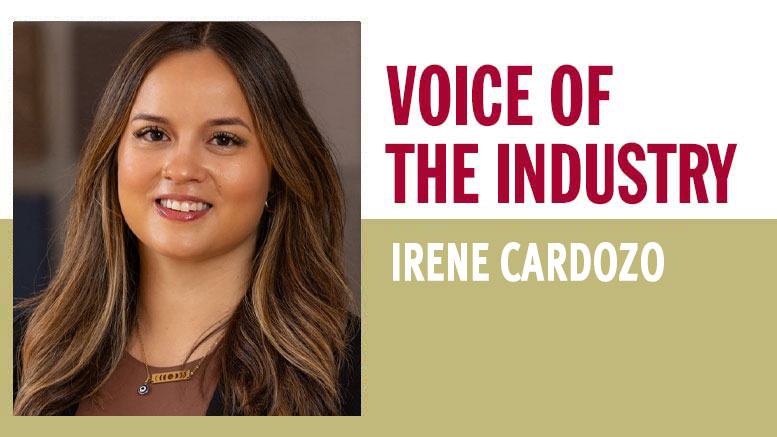Cutting Through the Noise: Why Truth Matters in Food Marketing
November 10, 2025 | 4 min to read

When it comes to produce, perception matters almost as much as taste. And in today’s digital landscape, misinformation can spread faster than facts, confusing consumers, undermining trust, and ultimately hurting the produce industry. Over the past year, one example stands out: the misinformation firestorm surrounding Apeel, a plant-based coating designed to extend the shelf life of produce.
The recent media mini-storm around Apeel is an important cautionary tale for retailers and marketers in what can happen when a celebrity gets on the misinformation bandwagon — as was the case with Michelle Pfeiffer’s Instagram post in June, stating that “organic produce is no longer safe.”
The truth? Apeel’s organic formulation, Organipeel, hasn’t been used in the organic marketplace for over two years. And by law, every material used in organic farming and handling must be reviewed, disclosed, and approved by accredited third-party certifiers. The organic seal remains the most transparent and federally regulated label in the food system.
The retraction of the false post came long after the damage was done — after consumers had shared, worried, and questioned whether they could trust what they saw in the produce aisle.
This is not an isolated incident, as food misinformation has become one of the industry’s biggest threats. It thrives because it plays to our emotional connection to food. It triggers fear for our families, skepticism of big business and confusion about science.
As a Millennial, I understand how persuasive these messages can be. I’ve paused to double-check an ingredient. I’ve stood in front of strawberries, wondering if the latest online post about pesticides had merit. I’ve had friends text me screenshots of claims like “organic is just marketing” and ask if it’s true.
Even working inside the industry, I’ve felt that tug of uncertainty.
In grad school on a tight budget, I debated whether to spend the extra dollar on organic spinach — and it wasn’t just about price, it was about trust. If I feel that way with insider knowledge, I can only imagine how overwhelming it is for everyday shoppers.
MISINFORMATION MATTERS
Produce sits at the center of this storm, and the stakes are high — for the sector and for our health, given how important produce is to our nutritional and dietary needs.
Organic is now a $71+ billion industry, growing at double the pace of conventional food products, according to OTA’s 2025 Market Report. This growth is fueled by younger consumers — Gen Z and Millennials — who demand transparency, care deeply about sustainability, and are willing to pay more for products they trust. But trust can be fragile. One viral post can undo months of thoughtful education and positive momentum.
THE POWER OF THE ORGANIC SEAL
Trust is exactly why the Organic Trade Association and The Organic Center launched the “Seal Makes It Simple” campaign in September, supported by a USDA Organic Market Development Grant.
The campaign’s goal is to cut through the clutter of claims and remind consumers that when they see the federally regulated USDA Organic seal, they don’t have to second-guess their purchase. Piloting in six regional markets — Atlanta, GA; Charlotte, NC; Indianapolis, IN; Louisville, KY; Lubbock, TX; and Tampa, FL — the shopper education program is running through 2026.
The campaign uses fact sheets, videos, and myth-busting graphics to separate rumor from reality.
A CALL TO ACTION
We cannot let misinformation rob consumers of confidence in organic produce. The stakes are too high for farmers, retailers and public health. As an industry, we must rally around trusted sources, amplify accurate voices, and remind shoppers that the USDA Organic seal is not just a logo, it’s a promise — rooted in transparency, backed by law, and designed to protect both people and planet.

Irene Cardozo is the director of marketing and communications at the Organic Trade Association, where she leads strategic communications, brand marketing initiatives, and cross-organizational campaigns to advance organic integrity and trust in the USDA Organic seal, and drive industry growth.
• • •
Solutions For The Produce Industry
How do we fight against misinformation? A few solutions stand out:
- Be proactive, not reactive. Producers and retailers should anticipate hot topics and prepare clear, shareable content ahead of time.
- Meet consumers where they are. Misinformation thrives on TikTok, Instagram, and YouTube because that’s where consumers spend time. The produce industry needs to be equally present there.
- Center on trusted sources. Shoppers are skeptical of companies defending their own products, but they trust third-party verification. That’s why the USDA Organic seal is so powerful.
- Tell personal stories. Data is critical, but anecdotes resonate. Sharing why farmers choose organic practices, or why young parents reach for the organic option, makes the benefits tangible.
5 of 33 article in Produce Business October 2025

